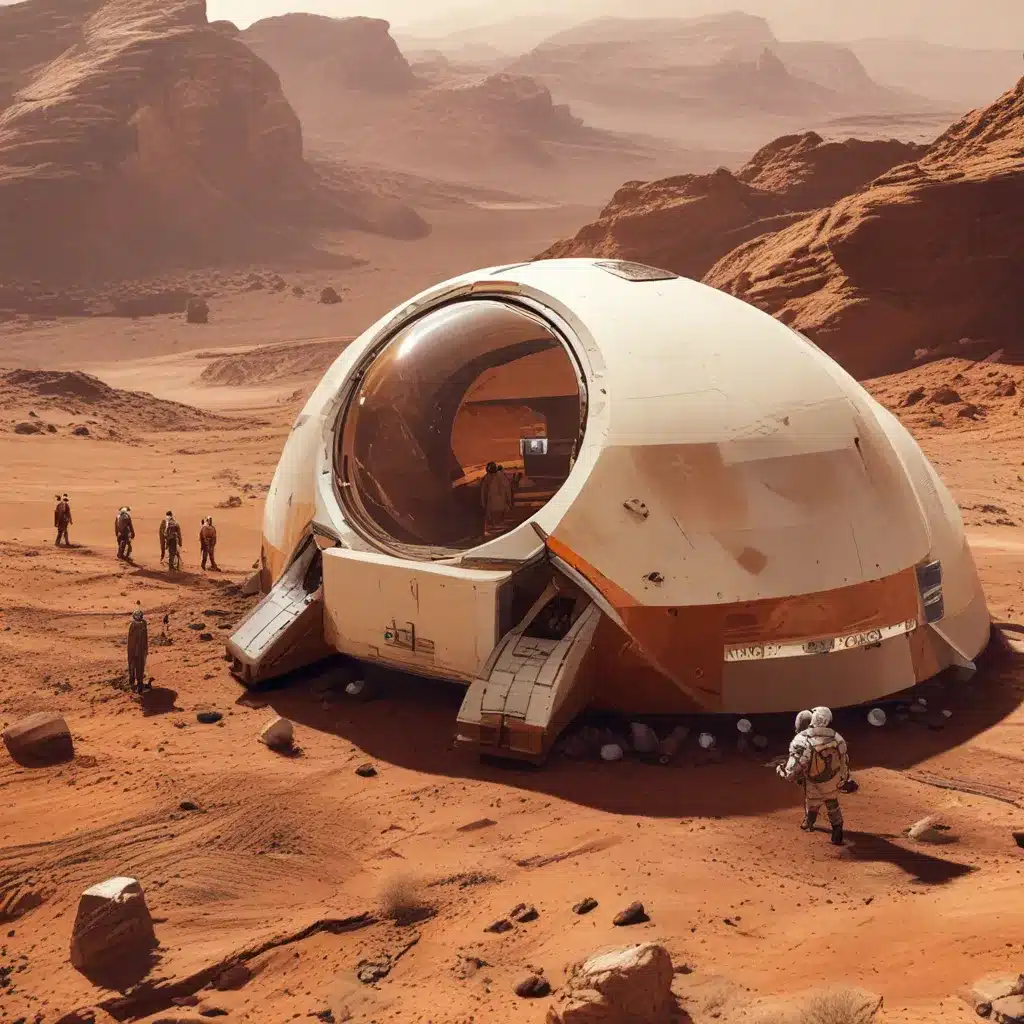
The Final Frontier
As I sit here, sipping my lukewarm tea and gazing out the window of my cozy London flat, I can’t help but wonder – is the colonization of Mars really just a far-fetched sci-fi fantasy, or could it become a reality in our lifetime? It’s a question that has been on my mind ever since I first read about NASA’s ambitious plans to put humans on the red planet by the 2030s.
I’ll admit, the idea of humans establishing a permanent settlement on Mars has always captured my imagination. Growing up, I devoured every science fiction novel I could get my hands on, dreaming of the day when we would venture beyond our home planet and explore the vast mysteries of the solar system. Books like “The Martian” and “Seveneves” fueled my fascination with the challenges and possibilities of space exploration.
The Challenges of Colonizing Mars
But as someone who also has a deep respect for science and technology, I know that the reality of colonizing Mars is infinitely more complex than the romanticized version depicted in science fiction. The sheer scale of the logistical and engineering challenges involved is mind-boggling.
For starters, there’s the issue of getting there. The journey to Mars can take anywhere from 6 to 9 months, depending on the alignment of the planets. That’s a long time for humans to be confined in a cramped spacecraft, hurtling through the void of space. And once they arrive, they’ll have to contend with the harsh Martian environment, with its thin atmosphere, extreme temperatures, and lack of resources.
Building a sustainable human settlement on Mars will require solving a host of problems – from growing food and producing water to generating power and protecting against the dangerous levels of radiation. It’s a daunting task, to say the least.
The Benefits of a Martian Colony
And yet, despite the challenges, the potential benefits of a Martian colony are tantalizing. For one, it could serve as a stepping stone for further exploration and even colonization of the rest of the solar system. A successful Martian colony could also inspire a new generation of scientists, engineers, and explorers, driving innovation and progress on Earth.
Moreover, a Martian colony could provide valuable insights into the origins of our solar system and the evolution of life itself. By studying the geology and climate of Mars, we could gain a better understanding of the processes that shaped our own planet. And who knows what other scientific discoveries might emerge from such an ambitious endeavor?
The Future of Space Exploration
Of course, the question of whether Mars colonization is “sci-fi or near future” is a complex one, with valid arguments on both sides. Some experts remain skeptical of the feasibility of establishing a self-sustaining Martian colony in the near future, while others believe that with the right investments and technological breakthroughs, it could become a reality sooner than we think.
Personally, I can’t help but feel a sense of excitement and wonder when I contemplate the possibility of humans setting foot on the red planet. Sure, the challenges are formidable, but that’s what makes the pursuit of this goal so thrilling. It’s a testament to the boundless ingenuity and determination of the human spirit.
As I sit here, sipping my now-cold tea, I can’t help but imagine what it must be like to gaze up at the night sky and see our home planet, a tiny blue marble in the vast expanse of space. Perhaps one day, there will be a human settlement on Mars, a beacon of our species’ drive to explore and conquer the unknown. Who knows, maybe I’ll even get to visit it someday. After all, with the rapid pace of technological progress, the future of space exploration is anything but certain.
The Takeaway
In the end, whether the colonization of Mars is science fiction or a near-future reality remains to be seen. But one thing is certain: the pursuit of this ambitious goal will continue to captivate and inspire us, pushing the boundaries of what we thought possible. And for a computer repair service like ITFix, that spirit of innovation and exploration is something we can’t help but admire and support.
So, who knows what the future holds? Perhaps the day will come when we’ll be able to book a trip to the Martian colony, just as easily as we can book a flight to New York or Paris. In the meantime, I’ll keep gazing up at the stars, dreaming of the day when humanity takes that giant leap into the unknown.












